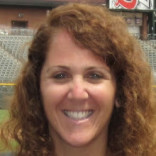The Exodus from Egypt is a significant event in Jewish history. It is where we began the transformation from people to a nation. The Egyptian experience provides much of the basis for social justice and morality. We are told not to subvert the rights of strangers and orphans, we are prohibited from taking a widow’s garment as a guarantee for a loan and if we overlook a sheaf in the field we are not permitted to retrieve it.
The collective memory of the Exodus from Egypt has served the Jewish people as an inspiration in the midst of oppression. The Exodus has given perpetual hope for a brighter future. Throughout history, Jews have continuously prayed to God and asked to be redeemed again.
In 1963, Rabbi Abraham Joshua Heschel delivered the opening address at the National Conference on Religion and Race in Chicago. “At the first conference on religion and race, the main participants were Pharaoh and Moses. Moses’ first words were: ‘Thus says the Lord, the God of Israel, let My people go that they may celebrate a feast to Me.’ While Pharaoh retorted:’Who is the Lord that I should heed his voice and Let Israel go? I do not know the Lord, and moreover I will not let Israel go.’ The outcome of that summit meeting has not come to an end. Pharaoh is not ready to capitulate. The exodus began, but is far from having been completed. In fact, it was easier for the children of Israel to cross the Red Sea than for a Negro to cross certain university campuses.”
For Rabbi Heschel, the Bible’s tale of the Exodus served as the foundation for his belief that human beings are meant to be free and equal. That message can be quite complicated to actually live out, but is a message we need to struggle with to live out everyday.

